A beacon of hope on the other side of the wall
People
The Holy Land is filled with astonishing stories and deeply moving experiences but, as The Southern Cross reports, none are more stirring than the Christian oasis of Bethlehem University where Jesus’ message of bringing life in all its fullness takes on a tangible meaning.
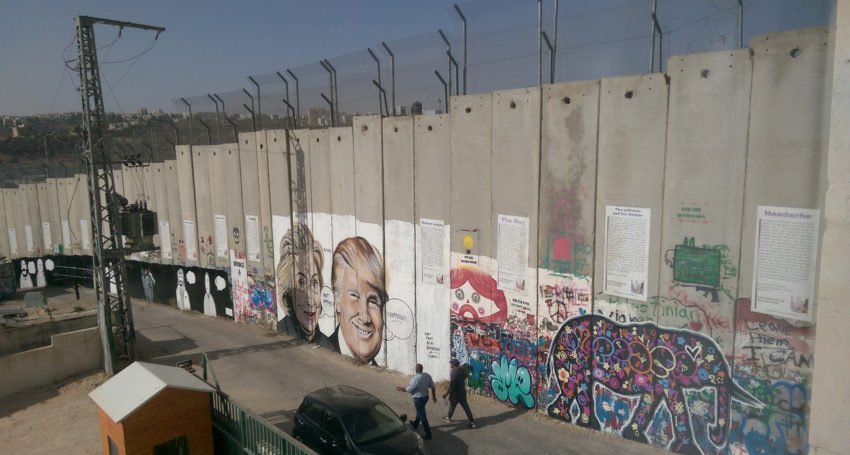
“I want to do everything. I want to live.”
These sentiments of a 22-year-old university student are unremarkable. A young woman with the world and her future at her feet.
But for her and for several thousand of her fellow students what she wants is not as easy to achieve as it might seem.
She is a student of Bethlehem University, an institution set up more than 40 years ago in Palestine following the visit of Pope Paul VI to the Holy Land, and run by De La Salle Christian Brothers.
Advertisement
This unashamedly Catholic university is no ordinary institution with upwards of 75 per cent of its more than 3300 students Muslim and a similar proportion female. The holy city in which it stands is no ordinary place, a Palestinian city south of Jerusalem in the West Bank. Palestine is under Israeli occupation.
Nearly half of the students come from East Jerusalem. They travel through Israeli military checkpoints on the separation wall each day and face the humiliations associated with that, along with delays that often mean they are late for class. For students living in Bethlehem or elsewhere in the West Bank, restrictions on travel permits means they cannot freely go into Jerusalem or into Israel. Some live in refugee camps.
A female student tells how she keeps her bus fare in her hand, “so I would not need to open my bag while I am standing beside the checkpoint waiting for my bus, so the soldier would not think I had a weapon and I would be shot.”
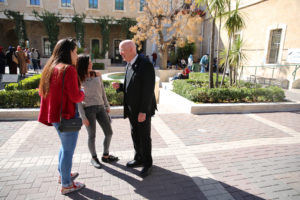
Vice-Chancellor Br Peter Bray chats with students on campus in Bethlehem
In all of this, university vice-chancellor Br Peter Bray, a New Zealander, talks about wanting students to “experience our campus as an oasis of peace in the midst of the occupation and the harshness”.
The university itself has been occupied by Israeli troops, closed from 1987 for three years, its buildings damaged by missiles, had four of its students killed including one on campus, and one of the brothers narrowly escaping with his life when fired on by a soldier.
Advertisement
Graduate Raghed says the university has “trained my heart on peace. It gave me all I needed to be who I want to be. Bethlehem University taught me to be a human being before anything else.”
Many students were born under Israeli occupation and have never been to the holy places in Jerusalem and elsewhere in Israel because the Israeli authorities will not permit them.
Bethlehem University came into being as a place of higher learning in 1973 following the historic visit of Pope Paul VI to the Holy Land in 1964. The rather circuitous route to the establishment of Bethlehem University originated with the desire of the Pope to do something to help the Palestinian people.
Br Peter articulates what that something is.
“I can’t believe this oppression is going to go on forever. When peace does come, what Palestine is going to need is educated, resourceful, creative people. I think Bethlehem University is making a huge contribution to help create that pool of people who are going to create the new Palestine.”
Peace seems impossible but it happened in South Africa, Northern Ireland, Germany and East Timor, he says.
“That is the hope I hold on to. That peace will come to the land where Jesus walked.”
An Arab taxi driver offers his take on when the oppression will end. “This land has never been occupied for long,” he says optimistically. “A hundred years, maybe, then the invaders go. It’s been 70 (years since the state of Israel was formed in Palestine). God willing, we won’t have to wait much longer.”
A question Br Peter is often asked is why the Church would bother to run a Catholic university in Palestine where less than 2 per cent of the population is Christian.
“We go back 2000 years when Jesus was walking this land,” he says. “There were no Christians at all there, so what was he doing? ‘I have come that they may have life, life in all its fullness.’ That’s what Jesus was doing. That’s what Bethlehem University is doing.
“We are seeking to create an environment, to build an atmosphere, to provide an opportunity for our students to learn the skills, to acquire the attitudes and values to enable them to live life as fully as they possibly can, given the circumstances.”
One of the biggest challenges facing the university is funding. About 60 per cent of its operating budget comes through fund-raising. As a result, Br Peter spends some of his year globe-trotting to raise awareness of the university and to persuade organisations and individuals to support the work.
Ï have never been involved in an organisation where the finances are so fragile,” he says.
Somehow the work not only goes on, but thrives from year to year.
The university offers faculties of the arts, business administration, education, nursing and health sciences, and science, as well as an institute of hotel management and tourism.
On a visit to Jerusalem, Pope Benedict singled out the university’s “outstanding achievements. You daily demonstrate your belief that our duty before God is expressed not only in our worship, but also in our love and concern for society, for culture, for our world, and for all who live in this land”.
So, as Br Peter points out, it is “difficult not to become involved in seeking to right the injustice being meted out” to Palestinians young and old.
It is also impossible as a visitor to the Bethlehem campus not to be overwhelmed by the positivity of the students, the passion of the small international community of religious brothers following in the footsteps of St John Baptist de la Salle, and the power of the message of hope they all live out every day.
Statistics
- 112 students enrolled in 1973
- 3318 students enrolled this year
- 17,197 degrees conferred
- $4000 cost per student
- 1893 the year the De La Salle Christians Brothers opened school in Bethlehem
- 3.5 hectares the size of the campus
Visit the Catholic Missions Australia site www.catholicmission.org.au/bethlehemuniversity to make a donation to a project for supervising nursing students doing clinical placements. This gift qualifies for tax deductibility. Or send a cheque to Catholic Mission Australia marked “To Bethlehem University” and mail to Catholic Mission Australia, PO Box 1668, North Sydney NSW 2059.


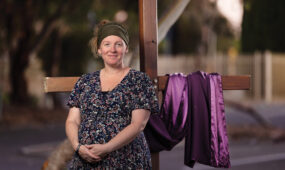
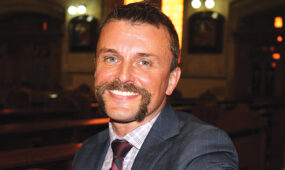
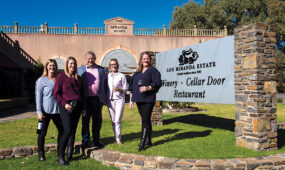
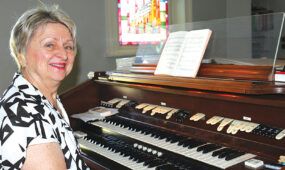

Comments
Show comments Hide comments